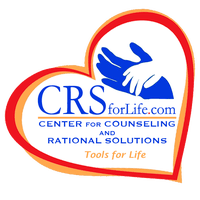Beyond Words: The Art of True Communication in Relationships

Communication is the cornerstone of any successful relationship, be it with our partners, parents, or children. However, there’s a common misconception that communication is limited to mere talking or engaging in conversation. Effective communication is a nuanced skill that goes far beyond words. Understanding the needs of both ourselves and those within our circle is crucial for building meaningful connections. In this blog post, we’ll explore the importance of distinguishing communication from mere conversation and delve into ways to repair, move forward, or resolve conflicts in our relationships.
The first step in fostering better communication is to recognize and understand our own needs. What are our expectations, desires, and fears? Taking the time for self-reflection allows us to communicate more authentically and express our thoughts and feelings with clarity.
Simultaneously, it’s essential to empathize with the needs of others. Every individual has unique emotional, physical, and psychological requirements. By actively listening and observing, we can gain insights into the needs of our partners, parents, and children. This empathetic approach forms the foundation for building stronger connections.
Communication is not just about the spoken or written word; it encompasses body language, tone of voice, and the ability to actively listen. Often, miscommunication arises when we focus solely on verbal exchanges and neglect these non-verbal cues. Paying attention to subtle signs can help us better understand the emotions and needs of those around us.
To move beyond words, practice active listening. Make a conscious effort to hear not only what is being said but also the underlying emotions and concerns. Validate the feelings of others, acknowledging their experiences without judgment. This creates an open and supportive environment for effective communication.
Relationships inevitably encounter challenges, and misunderstandings can strain even the strongest bonds. When faced with conflicts, it’s essential to approach the situation with a willingness to repair and move forward. Honest and respectful communication is key in these moments.
Express your feelings and concerns calmly and clearly. Use “I” statements to avoid sounding accusatory and to take responsibility for your emotions. Encourage open dialogue, allowing the other person to share their perspective as well. Finding common ground and understanding each other’s needs is crucial for resolving conflicts and moving forward.
In some cases, communication breakdowns may persist despite our best efforts. Seeking professional guidance through couples therapy, family counseling, or individual therapy can provide valuable tools and insights. Trained professionals can facilitate communication, offer new perspectives, and guide individuals and families toward healthier interactions.
Communication is an intricate dance that extends far beyond mere words. To build and maintain strong relationships, it’s crucial to understand and address the needs of both ourselves and those within our circle. By moving beyond words, actively listening, and fostering empathy, we can repair, move forward, and resolve conflicts, creating a foundation for meaningful connections that stand the test of time.

